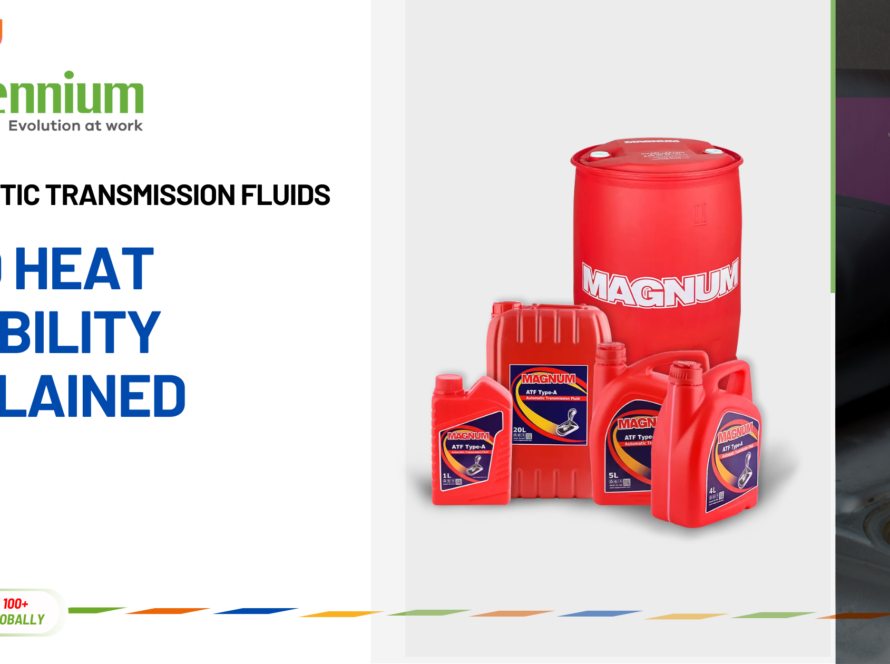There is one critical factor that determines the longevity of engines, and that is which is the type of oil used.
Machine operators or maintenance in charge are usually faced with the dilemma of diesel engine oils vs. conventional oils. This decision significantly impacts engine performance, fuel economy, and overall maintenance costs. Therefore, understanding the differences between these 2 types of oils is paramount for vehicle owners.
In this guide, we discuss the distinctive features of magnum diesel engine oils and conventional oils. By understanding the differences between both options, you can make informed decisions when selecting the right oil for your vehicles. Therefore, we suggest you read our guide until the very end to understand which option benefits you the most when it comes to diesel engine oils vs. conventional oils.
Exploring Diesel Engine Oil: A Comprehensive Guide
Diesel engine oils play a crucial role in the smooth operation of diesel engines, which are widely used in various applications such as transportation, construction, agriculture, etc. These specialized oils are designed to lubricate and clean the internal components of diesel engines, ensuring optimal performance and durability. While conventional oils are suitable for gasoline engines, diesel engine oils are formulated with additives and properties specifically tailored to meet the unique demands of diesel engines.
The primary functions of diesel engine oils include:
- Lubrication: Diesel engine oils create a protective layer between moving parts to reduce friction and wear.
- Cooling: By dissipating heat generated during engine operation, diesel engine oils help regulate temperatures within the engine.
- Cleaning: Diesel engine oils contain detergents that help remove contaminants, such as dirt, carbon deposits, and sludge.
- Protection: Engine oils also offer corrosion protection by forming a barrier against moisture and acidic byproducts of combustion.
Magnum Diesel Engine Oils: Features and Benefits
Magnum diesel engine oil is a premium choice for diesel engine lubrication, offering a range of features and benefits that set it apart from conventional options. When comparing magnum diesel engine oils to conventional options, several key factors highlight their superiority in terms of performance as well as overall engine health.
Enhanced Thermal Stability
Magnum diesel engine oils are engineered with advanced additives that provide exceptional thermal stability, ensuring optimal performance even under high-temperature operating conditions. They surpass conventional oils, which generally undergo thermal breakdown and viscosity loss, leading to reduced lubrication.
Superior Wear Protection
The unique formulation of magnum diesel engine oils includes anti-wear additives that create a durable barrier between metal surfaces, minimizing friction and wear. Compared to conventional oils, magnum oils offer superior wear protection, extending the lifespan of engine components.
Improved Fuel Efficiency
Magnum diesel engine oils are designed to reduce internal friction within the engine, resulting in improved fuel efficiency and lower operating costs. This advantage over conventional oils translates into enhanced fuel economy and reduced emissions, making magnum oils an environmentally friendly choice.
Enhanced Detergency & Deposit Control
Magnum oils feature advanced detergent and dispersant additives that effectively clean and prevent deposit buildup. This superior detergency ensures cleaner engine internals, improved oil circulation, and increased overall engine reliability.
Conventional Oils: Pros and Cons
Conventional oils also have been a longstanding choice for lubricating diesel engines. The main reason behind that has been a handful of benefits that are still offered by conventional options. So, when it comes to a direct comparison of diesel engine oils vs. conventional oils, there are a few pros and cons of conventional options that you need to keep in mind.
Advantages of conventional oils
Availability and Affordability
Compatibility with Older Engines
General Lubrication
Disadvantages of conventional oils
Limited Performance Under Extreme Conditions
Reduced Detergency and Deposit Control
Compatibility with Modern Engine Technologies
Comparison: Magnum Diesel Engine Oils vs. Conventional Oils
Magnum Diesel Engine Oils | Conventional Oils |
Enhanced thermal stability | Adequate lubrication under normal conditions |
Superior wear protection | Limited performance under extreme conditions |
Improved detergency and deposit control | Reduced detergency and deposit control |
Compatibility with modern diesel engine tech | Compatibility with older engines |
Enhanced fuel efficiency | General lubrication |
Extended engine life | Average engine life |
Reduced wear and tear | Increased wear under extreme conditions |
Minimized deposit buildup | Potential for deposit accumulation |
Effective corrosion protection | Basic corrosion protection |
Higher initial cost but lower long-term costs | Lower initial cost but higher long-term costs |
Longer oil change intervals | Regular oil change intervals |
Factors to Consider For Magnum Diesel Engine Oils Vs. Conventional Oils
When it comes to magnum diesel engine oils vs. conventional oils, several key factors should be considered to make an informed decision that aligns with your engine’s requirements as well as performance.
Engine Type and Specifications
Check your diesel engine’s model and specifications, including its age and design, before choosing an engine oil. Modern engines benefit more from magnum diesel engine oils, whereas older engines may suffice with conventional oils.
Operating Conditions
Consider the typical operating conditions of your diesel engine. Magnum oils are designed to perform well under extreme conditions.
Performance Requirements
Determine the level of performance you expect from your diesel engine, including factors like fuel efficiency and power output. Magnum diesel engine oils offer enhanced performance features like improved fuel efficiency and enhanced detergency compared to conventional oils.
Longevity and Maintenance
Assess your preferences regarding engine longevity and maintenance intervals. Magnum oils often provide longer oil change intervals and reduced wear and tear.
Cost Considerations
Compare the initial cost of magnum diesel engine oils with conventional oils, as well as the long-term cost-effectiveness, considering factors like fuel efficiency, maintenance intervals, and potential engine repair costs.
Frequently Asked Questions
Can I switch between Magnum diesel engine oils and conventional oils?
Are conventional oils suitable for all diesel engines?
How do Magnum diesel engine oils differ from conventional oils in terms of performance?
Can I switch between Magnum diesel engine oils and conventional oils?
Are Magnum diesel engine oils more expensive than conventional oils?
Conclusion
In this guide, we have talked about various factors that can help you make a better choice between magnum diesel engine oils vs. conventional oils. Here, you will find the critical factors that vehicle owners, as well as operators, must consider when selecting the appropriate oil for their diesel engines. While conventional oils remain suitable for certain diesel engines, especially older models, magnum oils are getting preference for their superior performance under extreme conditions.



